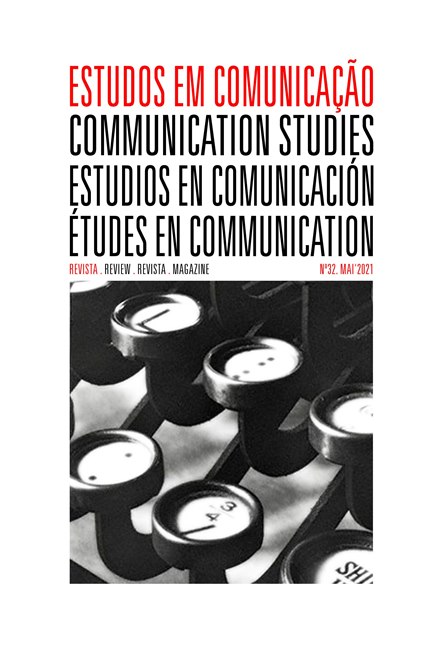Marcelo Rebelo de Sousa: um Presidente da República que reconfigurou o cargo com a colaboração dos média noticiosos
Palavras-chave:
Presidente da República, mediatização, jornalismoResumo
A afirmação política no espaço mediático, por parte de Marcelo Rebelo de Sousa, durante o seu primeiro mandato como Presidente da República (2016-2021), constituiu uma singularidade institucional no domínio da relação com os média, com o espaço público e em termos de interpretação e desempenho dos poderes presidenciais, na sua relação com o Governo e o Primeiro-ministro António Costa. Este artigo visa identificar em que medida o desempenho da ação presidencial, em Marcelo Rebelo de Sousa, tal como espelhada através da imprensa diária, trouxe uma reconfiguração do papel do Presidente da República, na sua interpretação dos poderes e funções presidenciais. Em termos metodológicos, este estudo socorre-se essencialmente da técnica de análise de conteúdo, aplicada a um corpus de análise derivado dos principiais diários generalistas portugueses, totalizando 2.458 textos noticiosos, no intervalo entre os dias 9 de março de 2016 (dia de tomada de posse) a 7 de dezembro de 2020 (dia do anúncio da recandidatura ao cargo). A questão de partida a que se pretende dar resposta é: em que extensão o primeiro mandato (2016-2021) de Marcelo Rebelo de Sousa, tal como espelhado na imprensa ao longo deste período, passou uma imagem de reconfiguração dos poderes presidências?
Referências
(2016, abril 23). Público.
(2017, março 9). Público.
(2017, julho 30). Diário de Notícias.
(2018, maio 8). Público.
(2020, novembro 2). Público.
Bacelar Gouveia, J. (2007). A Dissolução da Assembleia da República – Uma nova perspectiva da dogmática do Direito Constitucional. Almedina.
Blondel, J., Thiébault, et al (2010). Political leadership, Parties and Citizens. Routtledge.
Blumler, J., & Kavanagh, D. (1999). The Third Age of Political Communication: Influences and Features. Political Communication, (16), 209-230.
Blumler, J. (2001). The third age of political communication. Journal of Public Affairs, 1(3), 201-209.
Castells, M (2007). Communication, Power and Counter-power in the Network Society. International Journal of Communication, (1), 238-266.
Corner, J., & Pels, D. (2003). Media and the restyling of Politics. Sage Publications.
Costa Pinto, A., & Canelas Rapaz, P. (2018). Presidentes e Semi-presidencialismo nas Democracias Contemporâneas. ICS.
Duverger, M. (1978). Échec au Roi. A. Michel.
Duverger, M. (1980). A New Political System Model: Semi-Presidential Government. European Journal of Political Research, (8), 165-187.
Espírito Santo, P., & Lopes, F. (2019). Marcelo Rebelo de Sousa, a Popular President who has all the Media Coverage - Content Analysis of the Press (2016-2018). Obs., 13(4), 1-13.
Espirito Santo, P., & Figueiras, R. (2019). Populism and the media factor: The Portuguese case in a European comparative perspective. In E. Hidalgo Tenorio, M.-A. Benitez-Castro & F. De Cesare (Eds.), Populist Discourses – Critical Approaches to Contemporary Politics. Routledge.
Fabbrini, S. (2005). The Semi-Sovereign American Prince. The Dilemma of na Independent President in a Presidential Government. In T. Poguntke, P. Webb, The presidencialization of politics-a comparative study of modern democracies (pp. 313-336). Oxford University Press.
Freire, A., & Costa Pinto, A. (2006). O Poder dos Presidentes. Campo das Letras.
Howard, P., Woolley, S., & Calo, R (2018). Algorithms, bots, and political communication in the US 2016 election: The challenge of automated political communication for election law and administration. Journal of Information Technology & Politics, 15(2), 81-93.
King, A (Ed.) (2003). Leaders’ Personalities and the Outcomes of Democratic Elections. University Press.
Lopes F., & Botelho, L. (2019). Marcelo, Presidente todos os dias. Porto Editora.
Lopes, F., & Espírito Santo, P. (2016). Os 100 Primeiros Dias do XXI Governo Constitucional através da Imprensa Generalista: Quando as Finanças Travam uma Mudança de Ciclo Político. Estudos em Comunicação (23), 1-22.
Lopes, F., & Espírito Santo, P. (2019). Quando um Presidente da República vive no limite do semipresidencialismo. Estudos em Comunicação, 1(28), 237-258.http://ojs.labcom-ifp.ubi.pt/index.php/ec/article/view/554/pdf.
Mazzoleni, G., & Schulz, W. (1999). Mediatization of Politics: A Challenge for Democracy?, Political Communication, 16(3), 247-261.
Moreira, V., & Canotilho, J. (1991). Os Poderes do Presidente da República. Coimbra Editora.
Negrine, R., & Stanyer, J. (2007). The Political Communication Reader. Routledge.
Sabato, L. (2000). Feeding Frenzy- Attack Journalism & American Politics. Lanahan Publishers, Inc.
Schwartzenberg, R.-G. (1977). O Estado Espectáculo. Difel.
Stier, S., Bleier, A., Lietz, H., & Strohmaier, M. (2018). Election Campaigning on Social Media: Politicians, Audiences and the Mediation of Political Communication on Facebook and Twitter. Political Communication, 35(1), 50-74.


